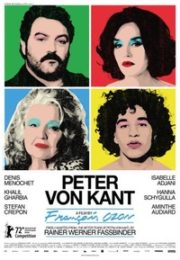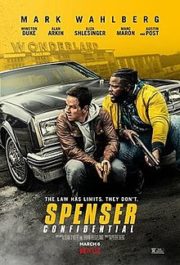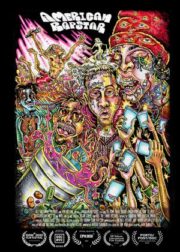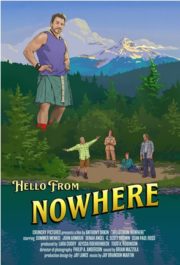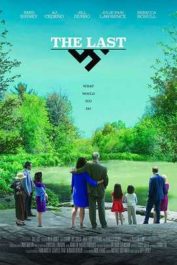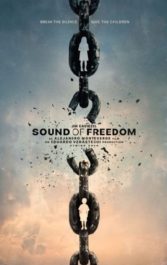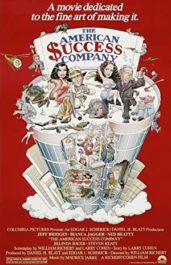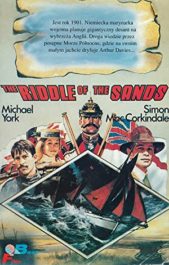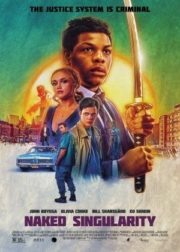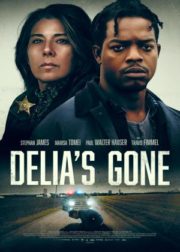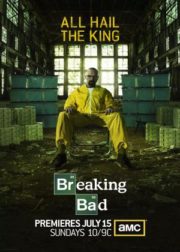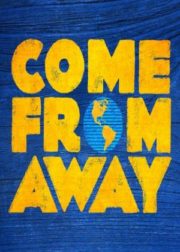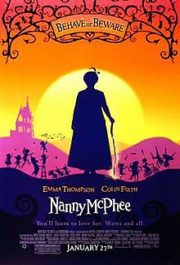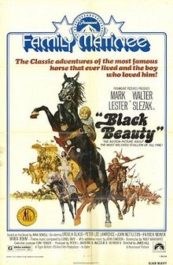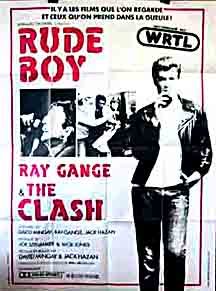
“Rude Boy” is a British drama film released in 1980, directed by Jack Hazan and David Mingay. The film combines elements of documentary and fiction to tell the story of a young punk rock fan who becomes involved with the music scene and political activism in London during the late 1970s.
Plot Summary:
The film follows Ray Gange, a young working-class man who works as a courier during the day and spends his evenings immersed in the emerging punk rock scene. Ray idolizes punk band The Clash and is determined to become involved in the music industry. When he gets a job as a roadie for The Clash’s “On Parole” tour, Ray’s life takes an unexpected turn.
As Ray travels with the band, he witnesses the highs and lows of the music industry and becomes exposed to the political activism and social unrest of the time. He encounters conflicts between the band members, confronts the commercialization of punk music, and grapples with his own political awakening.
Through Ray’s journey, “Rude Boy” explores the clash between the rebellious spirit of punk rock and the realities of working-class life in Thatcher-era Britain. The film incorporates real concert footage, interviews, and fictionalized scenes to provide an authentic and gritty portrayal of the punk subculture and the political climate of the time.
Themes and Impact:
“Rude Boy” explores themes of youth rebellion, disillusionment, and the power of music as a form of protest. The film captures the spirit of punk rock and its influence on British society, highlighting the tensions between the music’s anti-establishment ethos and the commercialization of the industry.
The film received critical acclaim for its unique blend of documentary and narrative elements, effectively capturing the energy and subversiveness of the punk scene. It provides an intimate and raw look into the lives of both the band members and their fans, offering a social commentary on the socio-political climate of the era.
“Rude Boy” has since gained cult status among punk music enthusiasts and remains an important cultural artifact of the punk rock movement in the late 1970s. It offers a snapshot of a pivotal moment in music and youth culture history, capturing the essence of rebellion and the impact of music as a catalyst for change.
Conclusion:
“Rude Boy” is a compelling and authentic exploration of the punk rock scene in 1970s London. Through its innovative combination of documentary and fictionalized storytelling, the film offers a unique perspective on the collision of music, politics, and social change. It remains a significant cultural artifact of the punk movement, providing a gritty and honest portrayal of the era’s subculture and its influence on British society.
Submit your review | |
Rude Boy, released in 1980 and directed by Jack Hazan and David Mingay, is a gritty and raw film that immerses viewers in the vibrant punk subculture of late 1970s London. It follows the story of Ray Gange, a young working-class man who becomes a roadie for The Clash, one of the most influential punk rock bands of the era.
The film serves as a unique blend of documentary and fiction, blurring the lines between reality and narrative. It captures the energy and rebellion of the punk movement, showcasing the anarchic spirit and anti-establishment sentiment that defined the time. Rude Boy provides an authentic glimpse into the music scene, depicting the raucous concerts, backstage chaos, and the struggles faced by both the band and their fans.
At its core, Rude Boy explores the political climate of the era, touching upon themes of social inequality, racial tensions, and class struggles. Through Ray's experiences and encounters, the film delves into the harsh realities faced by working-class individuals, while also addressing the complexities of political activism and the clash between ideology and pragmatism.
The strength of Rude Boy lies in its rawness and authenticity. It captures the raw energy of live performances, with electrifying concert footage that transports viewers into the midst of the punk rock revolution. The film also benefits from the inclusion of interviews and real-life events, adding a layer of realism and providing a historical context for the narrative.
However, Rude Boy is not without its flaws. The film's narrative can be disjointed at times, with certain scenes feeling disconnected or lacking in cohesion. Some viewers may find the mix of documentary and fictional elements disorienting, as it blurs the boundaries of storytelling. Additionally, the character development could have been stronger, as many of the supporting characters feel underdeveloped and serve primarily as background figures.
Despite these shortcomings, Rude Boy remains an intriguing and compelling film for punk music enthusiasts and those interested in the cultural and political climate of the late 1970s. Its gritty style and authentic portrayal of the era make it a valuable document of an influential period in music history. While it may not reach the heights of some other punk-related films, Rude Boy captures the rebellious spirit and DIY ethos of the movement, leaving a lasting impression on viewers.

